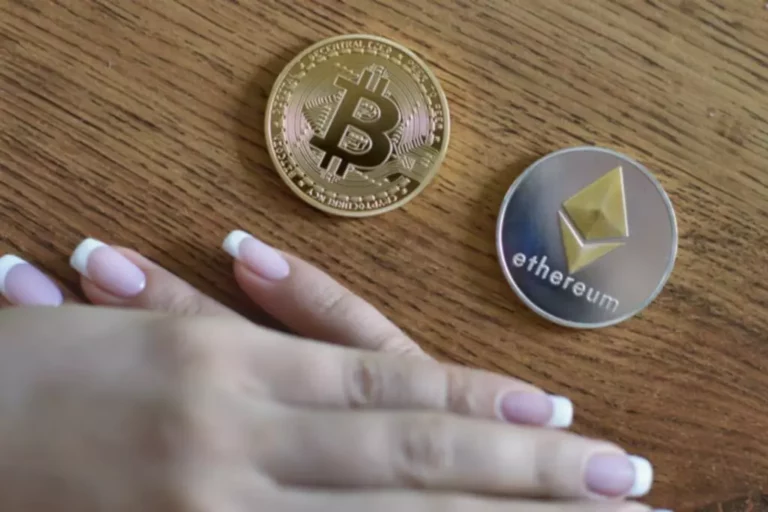Content
You’re placing a lot of trust in the exchange if you store your Bitcoin there. For example, you could lose your Bitcoin if the exchange were hacked, a rogue employee stole your private keys, or if the owners of the exchange took the money and ran. That’s one reason we recommend Coinbase, which is a bigger company with a decent track record that’s based in the USA, over smaller https://www.xcritical.com/ exchanges that may not be as trustworthy. These platforms handle transaction verifications and security measures, freeing users from complex technical tasks. In case of hacks, exchanges can trace fund movements, increasing the chances of asset recovery. Users access a wide array of coins through intuitive interfaces.
Cryptocurrency Wallet vs Exchange Storage: Who Really Controls Your Crypto?
The basic functions of a trading platform are straightforward. A user deposits fiat currency (like USD, EUR) or digital currency into their account on the platform. They can then use these funds to purchase other coins and tokens. After executing crypto trades, users have the option to either store their cryptocurrency tokens on the platform or withdraw them for Proof of space added security. When it comes to using traditional crypto wallets vs. exchange wallets, the choice mostly depends on your preferences and characteristics as an investor.
Storing Crypto on Exchanges vs. Wallets
This autonomy means users can send, receive, and store crypto without relying on exchanges or other intermediaries. Most crypto wallets don’t charge any fees for managing or storing coins. When sending or receiving money, certain wallets, however, may impose transaction crypto wallet vs exchange fees.
What’s the main difference between a crypto exchange and a wallet?
These wallets are compatible with a wide range of popular digital assets, allowing users to manage multiple cryptocurrencies in one place. On the other hand, digital wallets require a certain level of understanding of how digital currencies work. New users may find the concept of private and public keys, along with recovery phrases, somewhat challenging to grasp. The process of transferring assets can also be daunting for beginners.
Can I use a crypto wallet to buy or sell cryptocurrencies?
Exchanges provide a platform for trading and exchanging cryptocurrencies, while wallets focus on securely storing and managing crypto assets. Understanding the differences between the two can help individuals choose the right tool for their specific needs and preferences. Understanding the contrast between a crypto wallet and an exchange is essential for individuals looking to navigate the world of cryptocurrencies. While a wallet is primarily used for secure storage and management of digital assets, an exchange provides a platform for buying, selling, and trading cryptocurrencies.
- In a wallet, the user has complete control over their private keys, which means they have full ownership and responsibility for their cryptocurrencies.
- An application that enables a user to store all of their cryptocurrency is known as a cryptocurrency wallet.
- You can set up recurring purchases to build your stash over time.
- Each type caters to different security needs and convenience.
- It is what others use to send funds to your wallet—think of it as your bank account number.
Digital wallets, particularly software wallets, are often free to use, and usually come with minimal costs. While there may be network fees for sending assets (known as gas fees in some networks), these aren’t fees charged by the provider itself. When receiving crypto payments, you give the sender your wallet’s public address.
That said, exchanges control the private keys to these wallets, which means you’re not the only one with access to your cryptocurrency holdings. A cryptocurrency wallet is a digital tool that securely stores, sends, and receives cryptocurrencies. The private key, akin to a secret password, is known only to the wallet owner and is crucial for authorizing outgoing transactions. On the other hand, the public key acts as an address where others can send cryptocurrencies.
This introduces some level of risk, as exchanges can be susceptible to hacks or other security breaches. Unlike a traditional physical wallet that holds your cash, a crypto wallet operates entirely differently. It doesn’t store your digital currency in a tangible form; instead, it securely stores your private key.
A crypto wallet, as the name suggests, is a digital wallet used for storing and managing cryptocurrencies. It is a software program that securely stores the private and public keys necessary for accessing and transacting with your digital assets. Unlike traditional wallets, crypto wallets don’t store physical currency; instead, they store digital representations of your assets. The term “crypto wallet” seems to give many people the false impression that it physically stores or contains their holdings in some way. A crypto wallet is actually just a small device or piece of software that allows the owner to manage their funds on the blockchain. When a new wallet is created, it generates a pair of “keys”, lengthy alphanumeric sequences used in tandem to send and receive crypto to or from the wallet address.

With a crypto wallet, the user controls the funds directly via private keys. On a crypto exchange, especially a centralized one, the exchange manages the funds on the user’s behalf, limiting the user’s control over private keys. Crypto wallets and exchanges are indispensable tools for navigating the evolving landscape of digital investing and cryptocurrency management.

Remember to do your own research and consider consulting with a financial advisor or cryptocurrency expert if you have any questions or concerns. If you prioritize security and privacy, a crypto wallet may be a better option as it allows you to store your private keys offline or under your control. However, it also requires you to take responsibility for your own security. If you prefer a more user-friendly security experience, an exchange may be more suitable as it offers features like two-factor authentication and customer support.
On the other hand, a crypto exchange is a platform where users can buy, sell, and trade cryptocurrencies. It acts as a marketplace where buyers and sellers can meet and exchange their digital assets. On the other hand, crypto wallets can be software- or hardware-based. They allow users to store their private and public keys, thereby giving them full control over their funds. They offer the convenience of making transactions directly from the wallet and often include features for managing multiple cryptocurrencies. While a crypto wallet is primarily focused on storing and managing your digital assets, a crypto exchange provides various trading options.
A Bitcoin wallet actually contains one or more private keys that allow you to sign transactions. These private keys are the mathematical proof that you indeed own a certain amount of Bitcoin. Think of these private keys as secret codes that allow you to spend that Bitcoin. For efficient investment across cryptocurrencies and traditional assets, Nonbank offers an integrated solution. An exchange, on the other hand, usually requires users to complete a verification process that includes providing personal information before they can start trading.
Each serves distinct purposes that users can take advantage of depending on their investment objectives. It’s best to understand the nuanced differences and functionalities between the two. This way, investors and general cryptocurrency users can make informed decisions to optimize their digital asset management strategies.

It’s like keeping your money in a safe at home instead of the bank. Crypto wallets and exchanges use different tricks to keep your coins safe. Wallets often have fancy locks like two-factor authentication.






